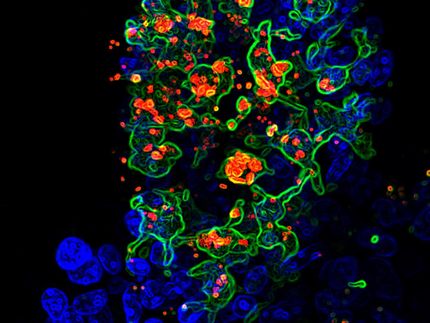New DNA test by Wageningen UR detects global threat to banana cultivation
Advertisement
Scientists from the Plant Sciences Group of Wageningen UR in the Netherlands and the Brazilian research organisation Embrapa have developed a rapid DNA diagnostic to test banana plants for the much-feared cause of the Panama disease. Published in Plant Pathology, the method only requires a day to detect and identify the presence of Tropical Race 4, the most devastating strain of the Fusarium fungus that causes Panama disease in banana plantations. The time savings offered by the new method can be used to implement efficient monitoring strategies, and thereby the threat to the cultivation of bananas, which is an economically vital crop that serves as a major food source in many tropical countries.
Tropical Race 4 (TR4) is a global threat to banana production. This strain of the Fusarium oxysporum f.sp. cubense fungus is capable of affecting and destroying practically all the world's export banana plantations. The threat is reminiscent of the devastating Panama disease epidemic that almost ruined commercial banana production in the previous century, which could only be stopped by switching to the cultivation of the Cavendish variety. Now Cavendish bananas are under threat from TR4 and there is no resistant variety available to replace Cavendish. Moreover, it is impossible to control the fungus once it has entered the plant. As a result it is crucial to be able to detect an outbreak of TR4 at the earliest possible stage in order to remove infected plants from the plantation, destroy them and prevent the fungus from spreading.
Scientist Gert Kema from Plant Research International (part of the Plant Sciences Group) says that the new method saves a great deal of time. "Until now, testing for the presence of TR4 took over four months. Within that period the fungus continued to grow and spread within the plantations. Now we can determine its presence within one day, even before symptoms of the disease are visible. This is a major breakthrough as bananas are a globally important food crop."
The main reason that the existing method takes so long is that the test always required the fungus to be cultivated and genetically analysed. The new diagnostic applies a sensitive and fast technique that allows plant material to be tested for the presence of TR4 DNA and show results within one day. Appropriate measures can be immediately taken should TR4 be detected.
The technology was developed and published within one year and can be applied without specific patent costs. The test can be used to detect the presence of the fungus in practical samples such as banana plants and soil quickly and on a large scale. Due to the magnitude of the threat, it is illegal to transport contaminated material within and between countries that cultivate bananas.
Other news from the department research and development
Most read news
More news from our other portals
See the theme worlds for related content
Topic world Diagnostics
Diagnostics is at the heart of modern medicine and forms a crucial interface between research and patient care in the biotech and pharmaceutical industries. It not only enables early detection and monitoring of disease, but also plays a central role in individualized medicine by enabling targeted therapies based on an individual's genetic and molecular signature.

Topic world Diagnostics
Diagnostics is at the heart of modern medicine and forms a crucial interface between research and patient care in the biotech and pharmaceutical industries. It not only enables early detection and monitoring of disease, but also plays a central role in individualized medicine by enabling targeted therapies based on an individual's genetic and molecular signature.























































